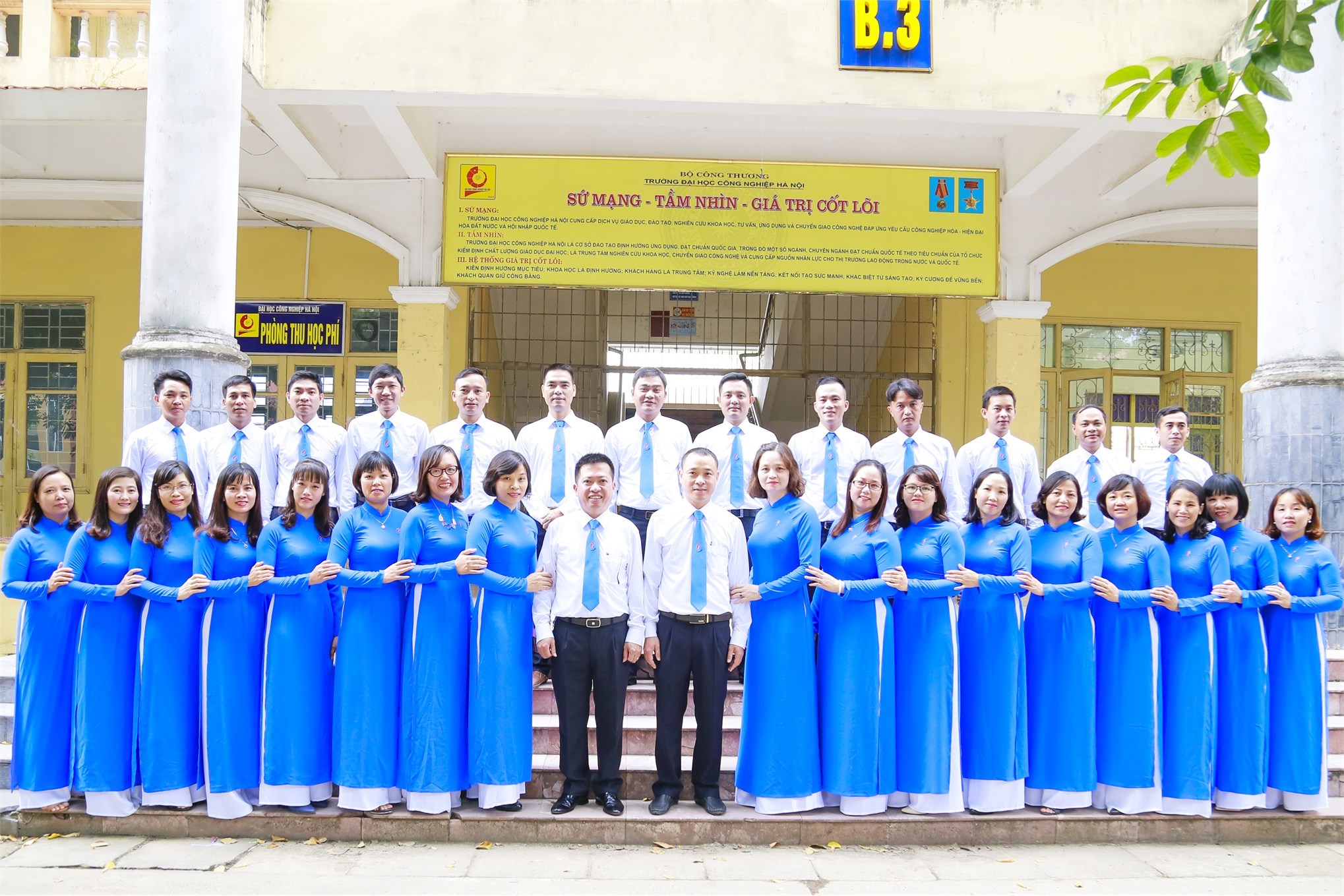Faculty of Chemical Technology
The Faculty of Chemical Technology, formerly known as the Faculty of Industrialization Technology, was established on March 1st, 2003 under Decision No. 171/QD/TC-HC. On October 27th, 2005, three groups of subjects of Basic Chemistry, Chemical Technology, and Laboratory Engineering were established by Decision No. 1585/QD-CĐCN. On December 22nd, 2005, according to Decision No. 2029/QĐ-ĐHCN, its name was changed to The Faculty of Chemical Technology after the University was decided to upgrade from College to University by the Prime Minister.
 On July 3rd, 2013, according to Decision No. 2424/QD-BGDĐT of the Minister of Education and Training, the Faculty was allowed to train the master's degree in Chemical Engineering, from July 2017 the Faculty opened the Doctoral course in Chemical Engineering. On November 14th, 2014, the Chemical Technology and Laboratory Engineering groups were dissolved and established new Departments: Organic Chemistry Technology, Inorganic Chemistry Technology - Chemical Technology, Analytical Chemistry Technology, Petrochemical Technology, Environmental Technology and Laboratory Engineering team.
On July 3rd, 2013, according to Decision No. 2424/QD-BGDĐT of the Minister of Education and Training, the Faculty was allowed to train the master's degree in Chemical Engineering, from July 2017 the Faculty opened the Doctoral course in Chemical Engineering. On November 14th, 2014, the Chemical Technology and Laboratory Engineering groups were dissolved and established new Departments: Organic Chemistry Technology, Inorganic Chemistry Technology - Chemical Technology, Analytical Chemistry Technology, Petrochemical Technology, Environmental Technology and Laboratory Engineering team.
Currently, the faculty is really a prestigious and qualified human resource training place. Every year, the Faculty provides the society with a large force of masters, engineers, and bachelors to meet the requirements for the development of chemical engineering and environmental engineering technology in the period of national industrialization and modernization. Most of the faculty members are experienced and enthusiastic in teaching and scientific research. The Faculty always actively builds programs, writes textbooks for teaching students. Over the past years, the Faculty has had many specialized research projects which are highly appreciated by experts. The faculty is equipped with modern machinery systems which are suitable for students to study and research science.
Students of the Faculty of Chemical Technology are equipped with basic social knowledge and specialized knowledge; Theoretical learning always goes hand in hand with experimentation. Students not only can practice at the modern laboratory of the Faculty but also apply the knowledge equipped to practical work through internships. The quality of the Faculty's training is increasingly improved and in fact, most of the students find jobs right after graduation.
Cooperation
Our faculty has established relationships and cooperation with many units such as:
- Institute of Chemical Engineering, Hanoi University of Science and Technology.
- Faculty of Chemistry, VNU University of Science.
- Faculty of Chemistry, Hanoi National University of Education.
- Vietnam Institute of Industrial Chemistry.
- The Institute of Chemistry, Vietnam Academy of Science and Technology.
- Institute of Natural Products Chemistry, Vietnam Academy of Science and Technology.
- Institute of Tropical Technology, Vietnam Institute of Science and Technology.
- Institute of Environmental Technology, Vietnam Academy of Science and Technology.
- Soils And Fertilizers Research Institute.
- National Institute of Animal Sciences.
- Vietnam Institute for Building Materials.
- Faculty of Chemical Technology, National Hankyong University, Korea.
- Faculty of Chemistry, University of Munich, Germany.
- Over 30 companies such as Hanoi Beer-Alcohol-Beverage Joint-Stock Corporation; Ha Bac Nitrogenous Fertilizer and Chemical Company Limited; Aviation High - Grade Plastic Joint-Stock Company; Nippon Paint Company; Dong Anh Mechanical Co,.Ltd; Vigracera Thang Long Joint Stock Company, Viet Tri paper Joint-Stock company; Viet Tiep lock company; Hanoi Rubber Joint-Stock Company; Thai Nguyen Iron and Steel Joint-Stock company; Hoang Thach Cement Company, Bim Son, etc.
Oriented development:
To meet the demand for providing high-quality human resources for the country's development process, the Faculty will focus on implementing some of the following key objectives in the coming time:
- To promote scientific research and technology transfer associated with actual production.
- To enhance domestic and international cooperation in training and scientific research.
- To improve the content of the training program, teaching methods, compiling textbooks; strengthening facilities and equipment for teaching and scientific research.
- To foster and improve teacher capacities by sending lecturers to participate in short and long-term training courses abroad.
Copyright © 2021 Hanoi University of Industry.